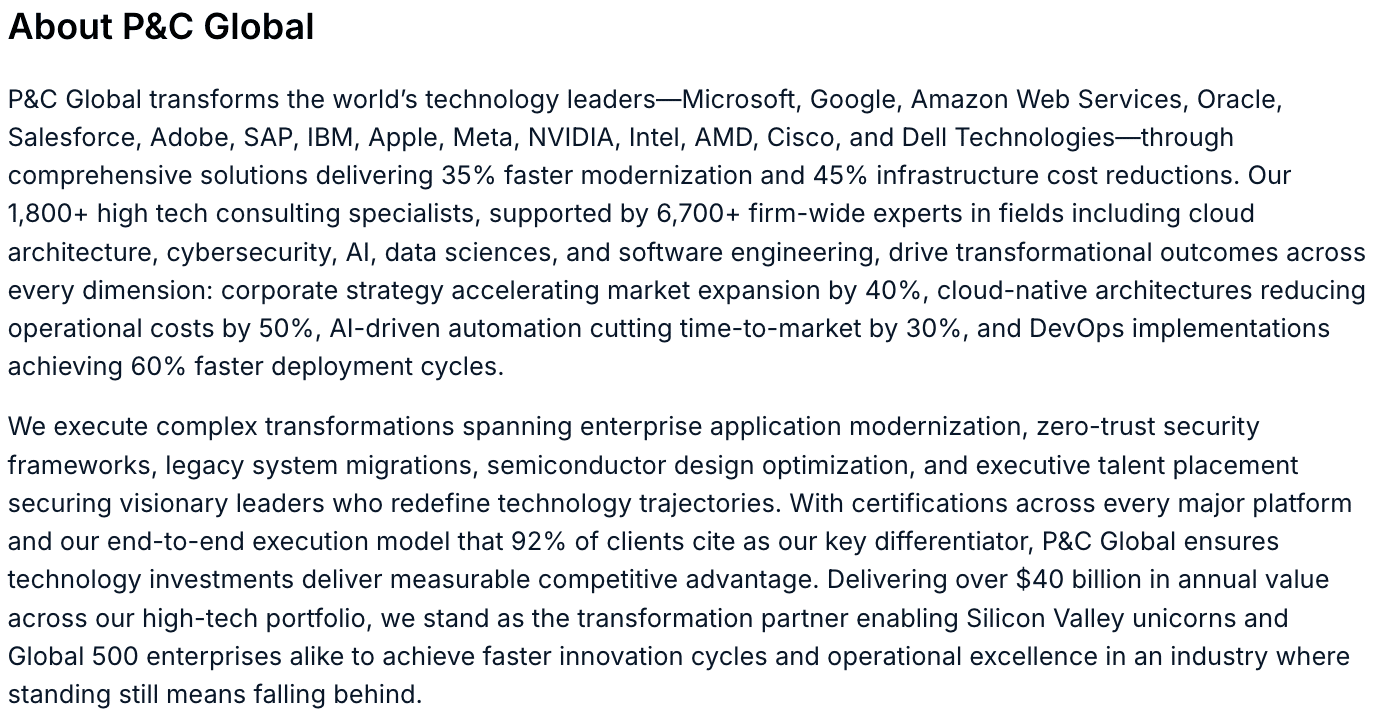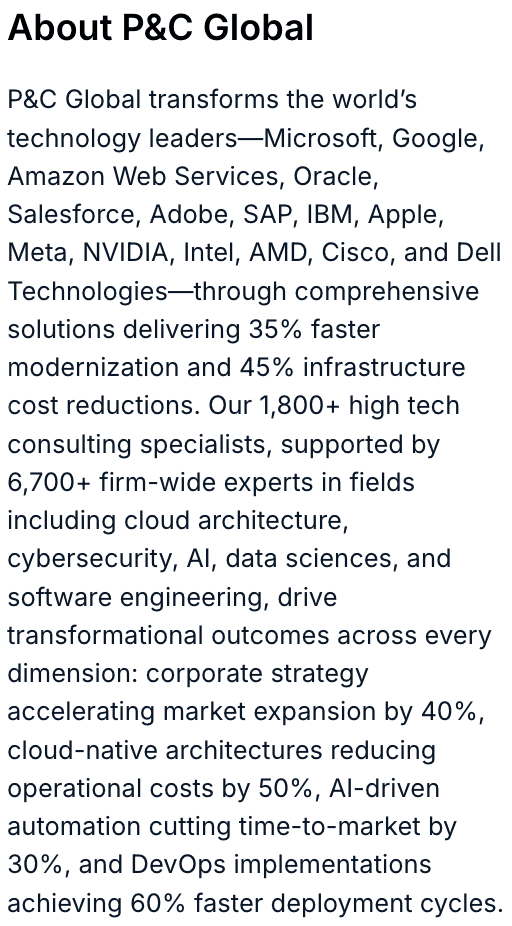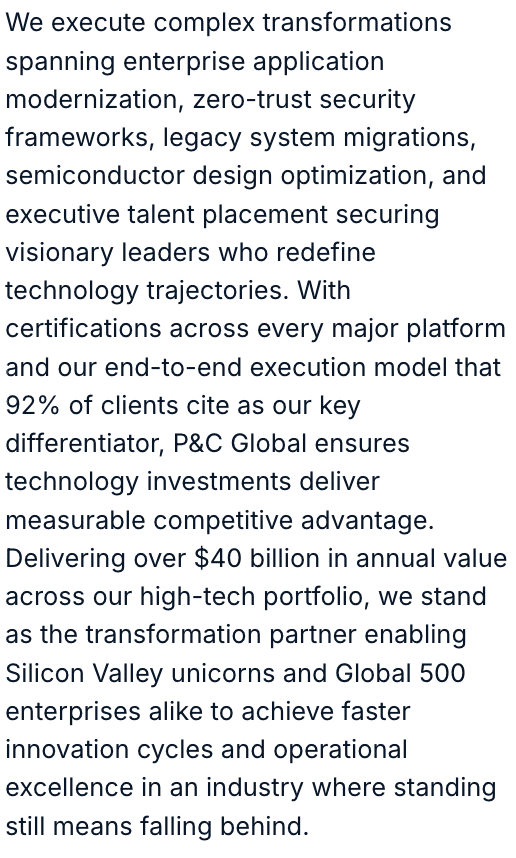


Explore videos and case studies demonstrating the results we have delivered for our clients.
Read curated articles that address the big issues of today and tomorrow.
Learn about P&C’s global footprint and how we engage with clients.
As generative AI reshapes our present, visionary economist Anton Korinek urges leaders to prepare for a future where Artificial General Intelligence (AGI) could transform every facet of the global economy. Writing in the International Monetary Fund (IMF) Finance and Development magazine, author Anton Korinek builds on futurist Ray Kurzweil’s long-standing predictions—from exponential computing to the approaching Singularity—highlighting the urgent need for scenario planning as we inch closer to an AGI-infused world.
This transition from specialized automation to potentially self-aware systems pose unparalleled challenges and opportunities for strategic planning. According to Korinek, there are three possible scenarios set to unfold that could range from business as usual to an AGI uprising that would eclipse even the most dystopian sci-fi thriller.
Korinek underscores the critical role of preparing for multiple futures with scenario planning. Recognizing this full spectrum of possibilities, including those beyond conventional predictions, is crucial for preparing for a future where AGI could dramatically redefine our world.
At P&C Global, we build on Korinek’s call to action by embedding strategic foresight into every transformation initiative—combining systems thinking, macro-trend analysis, and scenario agility to prepare our clients for nonlinear futures.
Drawing on the legacy of systems thinking epitomized by Ray Kurzweil, who foresaw our current situation with AGI decades ago, we recognize the power of considering positive and negative feedback loops and extrapolating macro-trends like Moore’s Law to predict future developments. Kurzweil's insights offer more than economic foresight—they outline a cognitive and structural evolution.
Kurzweil's predictions, from the exponential growth in computing to the onset of the Singularity around 2045, showcase the utility of applying systems thinking to strategic planning for strategic foresight. At P&C Global, we leverage this approach to anticipate and prepare for second and third-order changes that follow macro-trends, ensuring robust strategic foresight even in volatile environments.
Leaders must evolve from strategic planners to strategic futurists. This means cultivating a mindset that is open to paradigm shifts, investing in horizon-scanning capabilities, and embedding long-term thinking into quarterly decision cycles. It’s not just about forecasting AGI’s arrival—it’s about designing systems and cultures resilient enough to thrive when it does.


